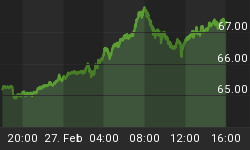Another trade war has been simmering away from the limelight for years, and the seemingly absurd has finally come to pass—the EU has flexed its considerable financial muscle by cutting off a key trade partner access to its market. Exchanges across the European Union have confirmed on Monday that they have suspended trading in Swiss shares following the passing of a critical deadline for EU authorities to extend a key regulatory agreement.
The making of another trade war
Since 2014, the EU has been desperately trying to get Switzerland to agree to amalgamate about 120 bilateral treaties between the two jurisdictions into a single agreement. The have been met with resistance: the Swiss have repeatedly refused to concede to EU terms without clarification on certain key issues especially with regards to how Switzerland will gain access to the single market.
At the end of 2017, Brussels decided to start playing hardball with Zurich by tying the issue of Swiss access to wider EU financial negotiations. The organization began granting Swiss stock exchanges temporary, rolling ‘equivalence’ status that allowed them to continue to trade EU stocks. Brussels though has been displeased with the snail’s pace of the negotiations and sees no reason to continue to recognize Zurich as an equivalent financial market to the EU.
With wider talks having failed, the EU has allowed the temporary equivalence status to run down to its July 1 deadline, culminating into EU investors being banned from trading Swiss shares on Swiss exchanges and forcing EU investors to trade Swiss stocks on EU soil only. In retaliation, Swiss authorities have prohibited EU exchanges from offering Swiss shares, essentially meaning that traders can only trade shares of popular Swiss companies such as Nestle (NSRGF) Novartis (NVS) and Roche (RHHBF) only on Swiss exchanges.
So, who are the winners and losers here?
Well, so far, Switzerland seems none the worse for wear after the ban. As things stand right now, the tiny Alpine nation seems to be having the upperhand with experts predicting higher volumes for Swiss bourse SIX, while European investors are likely to have a hard time laying their hands on Swiss stocks.
Indeed, Swiss blue chips have barely blinked in the bourse battle in Monday trading, with the Swiss Market Index was up 0.8 percent in Zurich on Monday—roughly in-line with gains at other European venues. So far, no obvious disruptions to trading have been reported. That’s quite encouraging for the Swiss, considering that about 300 Swiss stocks have about 30 percent of their trade volumes done in across EU markets.
Nevertheless, the situation could rapidly escalate if the EU decides to slap similar bans to other sectors of the Swiss economy.
Brexit parallels
It’s an interesting conundrum that has drawn interesting parallels with Brexit. Sure, Switzerland is only surrounded by the EU but is not part of the 27-nation organization. But that has not stopped experts from warning that a similar fate could befall the UK especially if it exits the bloc without a deal considering that Switzerland and the EU have maintained extremely close ties for decades.
The latest showdown certainly does not paint the European Union is a very positive light.
Related: Why Have Americans Stopped Moving?
By cancelling Zurich’s status as an approved stock market, the EU has shown itself as being willing to sacrifice its own market principle for political expediency. It’s a bad omen for the UK which has a lot more at stake then Switzerland if it departs the bloc in October without a comprehensive trade deal.
According to Charlotte de Montpellier, an economist at ING, "One important lesson [from the Switzerland disagreement] is that the EU is not afraid to put its threats into action when it is tired of long negotiations.’’
"They clearly want to send a message [to Britain] about access to the European market," Karel Lannoo, CEO of Brussels think tank Centre for European Policy Studies, was quoted as saying by CNN.
Under the Brexit agreement negotiated by Theresa May, the current banking arrangements would have remained intact till the end of 2020. In effect, British banks would continue to offer loans to countries such as Italy and Austria with no local subsidiaries. But under a no-deal scenario, financial relationships between the two jurisdictions would change dramatically for the worse.
The Swiss situation has provided a clear blueprint of how “equivalence” status can be conveniently deployed as a strategic weapon. The UK leaving the European Union without a transitional deal could mean an even more dire fate.
By Alex Kimani for SafeHaven.com
More Top Reads From Safehaven.com:
















